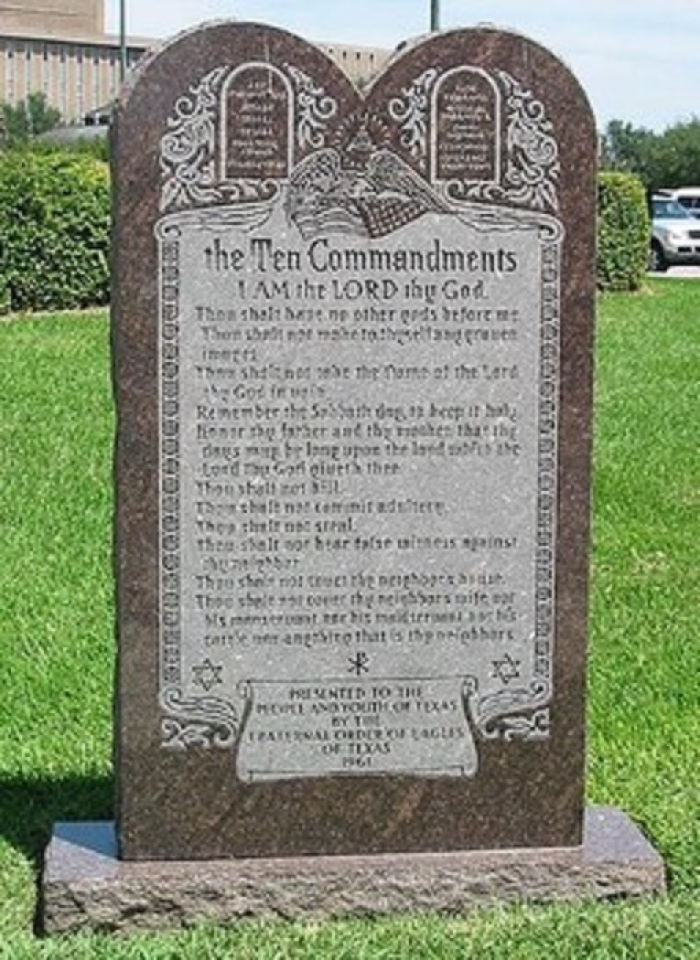Oklahoma Governor Says Ten Commandments Will Stay on Capitol Grounds During Appeal

The governor of Oklahoma has said that a Ten Commandments monument on government property recently declared in violation of the state constitution will remain on the state capitol grounds during the appeals process.
Governor Mary Fallin released a statement Tuesday noting that the Decalogue will remain on public property during an appeals process following a state supreme court decision concluding that the display violated Oklahoma's constitution.
"The monument was built and maintained with private dollars. It is virtually identical to a monument on the grounds of the Texas State Capitol which the United States Supreme Court ruled to be permissible," stated Gov. Fallin.
"It is a privately funded tribute to historical events, not a taxpayer funded endorsement of any religion, as some have alleged."
Fallin also expressed her support for Attorney General Scott Pruitt's filing of an appeal against the ruling made as well as legislative efforts to keep the monument on the capitol grounds.
"Oklahoma is a state where we respect the rule of law, and we will not ignore the state courts or their decisions. However, we are also a state with three co-equal branches of government," continued Fallin.
"During this process, which will involve both legal appeals and potential legislative and constitutional changes, the Ten Commandments monument will remain on the Capitol grounds."
In 2012, a privately funded Ten Commandments monument was installed on the grounds of the Oklahoma City capitol building.
The display came three years after a bill was passed allowing for monuments to be installed at the capitol provided they fulfill certain standards.
The Decalogue was about six feet tall and three feet wide, being placed on a base approximately ten feet from the building's north transept.
In August of 2013, the American Civil Liberties Union filed suit against the display, arguing that it was an unconstitutional government endorsement of religion.
American Atheists also filed suit and the New York-based Satanic Temple attempted to get a Satanic display erected on the same property, arguing equal access.
In September 2014, Oklahoma County District Judge Thomas Prince ruled in favor of the display, concluding that as with other displays at the capitol the Ten Commandments blended historical and spiritual significance.
"Many of these monuments and plaques depict both the secular and spiritual history of Oklahoma," wrote Prince, who noted the multiple images of Native American spiritual imagery existed in the various monuments.
"In short, the evidence demonstrates that the Ten Commandments Monument is one of many monuments and works of art, all rich with symbolism (some religious), that dot the Capitol Grounds."
Last week, the Oklahoma Supreme Court ruled 7-2 that the Decalogue display "violates Article 2, Section 5 of the Oklahoma Constitution, is enjoined, and shall be removed."
"The plain intent of Article 2, Section 5 is to ban State Government, its officials, and its subdivisions from using public money or property for the benefit of any religious purpose," read the decision.
"Because the monument at issue operates for the use, benefit or support of a sect or system of religion, it violates Article 2, Section 5 of the Oklahoma Constitution and is enjoined and shall be removed."





























